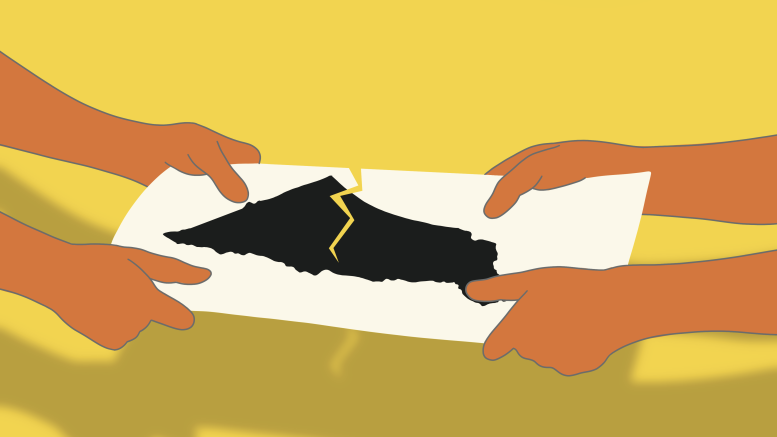There has been much debate in recent days over why Hamas chose to launch an “unprovoked” ground, air and sea attack against Israel, and its moral implications. We may never know exactly why the attack occurred when it did, but the idea that these are unprovoked acts is wrong and frankly ignorant.
Hamas, the militant group that controls the Gaza Strip, launched this attack, not the wider Palestinian population. Hamas has ruled in Gaza since 2007, taking control after winning the last parliamentary elections in 2006 and engaging in violent political conflict with the Palestinian Authority. Hamas claims the recent attacks were a response to the wider oppression of Palestinian people, particularly citing escalations of Israeli aggression in the West Bank and East Jerusalem.
Hamas seeks to completely uproot Israel, while other groups like the Palestinian Liberation Organization have recognized Israel’s right to exist and collaborated with the United Nations (UN) in efforts toward a peace process.
In 2015, the UN declared that Gaza could be “uninhabitable” by 2020. While people still live there, I do not think the UN was wrong. As of last fall, 65 per cent of Palestinians in Gaza lived below the poverty line and 60 per cent were unemployed. As of October 2021, 97 per cent of the region’s water was polluted. 63 per cent of people in the area are food insecure. These statistics are not a culmination of unfortunate events, but instead deliberate action by apartheid Israel to destroy the lives of over two million Palestinians.
In Gaza, Palestinians’ movement is restricted and they cannot easily leave the region. There are only two points of exit: the Rafah crossing, guarded by Egypt, and the Erez crossing, guarded by the Israeli military. This is why Gaza is often referred to as an “open air prison.”
The UN considers the Israeli blockade to be in violation of the Geneva Convention article on collective punishment. Due to the blockade denying goods, health care and movement, the UN considers Gaza to be under Israeli military occupation.
I had the honour of spending some time in Israel and Palestine this past April while taking a university course on the complexities of the conflict. In Canada, many of us sit in our ivory towers, casting out what is right and wrong in international human rights without ever having the smallest experience of what life is like for the people we talk about. The stark contrast of human rights held by Israelis and Palestinians that I witnessed was infuriating.
We saw just a glimpse of what Palestinians deal with every day. This included having to go through constant checkpoints to get from the West Bank into Israel, seeing the growing amount of illegal Israeli settlements scattered across the West Bank and the blatant apartheid that plagues the nation.
When our class spoke to a young Israeli soldier, he was excited to be doing his compulsory military service. However, when our professor asked him how he would feel if he was deployed to the West Bank, he immediately became quiet and would not answer the question. This encounter in particular angered me.
It frustrated me how he so nonchalantly avoided the question. To serve your county against a perceived threat and not feel confident enough to voice your feelings about it seemed incredibly privileged.
I think this encounter played out exactly like Israel’s narrative succeeds on the international stage. Israel’s allies, like the United States, tout the importance of “self-defence” which takes the form of military aggression against Palestinians. Allied nations don’t bat an eye when Palestinians are forcibly removed from their homes, denied basic needs or killed. Israel is not questioned. Nor is it ever taken to task by the international community when these acts happen, so it can continue to do these things without having to change its actions.
By far, the most disheartening part of my time in Israel and Palestine was visiting the Aida refugee camp in the West Bank. Aida is the most tear-gassed community in the world. Getting to spend time in the camp, where there is inadequate access to health care and a high unemployment rate, revealed a stark contrast. Not even 10 kilometres away in Jerusalem, people enjoy the full potential of life.
These conditions are created by deliberate acts that provoke people under the thumb of an oppressive state.
Israel has been playing the long game in its oppression of Palestinians, not just murdering swaths of Palestinians outright. It is strategically chipping away at all aspects of Palestinians’ lives. This strategy includes designating a hierarchy of “areas” where Palestinians are prevented from building or accessing communities within the West Bank, the prevention of Palestinians from living or travelling freely throughout Israel and Palestine, the forcible removal of Palestinians from their homes and the restriction of basic needs in Gaza, to name just a few examples.
At the time of writing, Israel’s Defence Minister Yoav Gallant has called for a “complete siege” of Gaza, cutting off food, electricity, fuel and water to the territory. He went further, continuing the narrative of dehumanizing Palestinians to say that Israel was at war with “human animals.”
A “complete siege” will kill many Palestinian civilians and destroy the little infrastructure that Gaza has. But many nations like the United States, Canada and the United Kingdom have stated it is morally okay to commit such human rights violations if it is in the name of “self-defence.”
To say that one side of this conflict is moral while the other is immoral is to cast a blind eye to the years of occupation, dehumanization and apartheid against Palestinians by Israel. Neither side has the ideal of morality at the top of their to-do lists. But continuing to pretend that one side is morally just while the other isn’t only continues the harms of apartheid and oppression that have led to the current state of Israel-Palestine relations.



